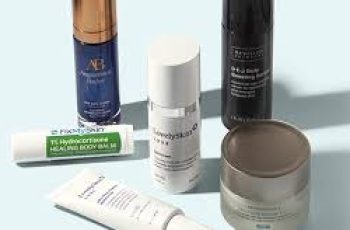
What is Aloe Vera? And What Are Its Skin Care Benefits?
Aloe vera may not seem like a great skincare ingredient, but hidden within its juicy green stems is a powerful, moisturizing jelly-like substance that has been a beauty secret since ancient Egypt. What are beauty experts and fans so obsessed with aloe vera? And what are its skin care benefits? Now let’s get started
investigating.
What Are the Benefits of Aloe Vera?
For years, aloe vera has been praised for its beneficial effects on the body inside and out, with many people drinking aloe vera water to hydrate their bodies faster than regular water.
This also has a positive impact on the appearance of the complexion, as it appears plumper and less dry. It also supports digestion, reduces high blood pressure, and boosts the immune system.
Aloe vera is used in many after-sun care products for its powerful moisturizing and cooling properties. Applying aloe vera gel to the skin after a day in the sun can soothe and cool the skin, reducing the risk of sunburn. Prevents sunburn. Overheating the skin and exposing it to the sun can lead to permanent skin damage.
This thick gel is also packed with a variety of skin-strengthening nutrients like minerals, over 10 different vitamins, amino acids, and active botanicals. Not to mention, it has antioxidant and anti-inflammatory properties, making it perfect for taking care of your skin if you suffer from dryness, sunburn, or other skin issues like psoriasis. Acne-prone skin types will also find that large, red, and swollen patches are less likely to appear.
What Does Aloe Vera Do for Your Face?
Considering that there are approximately 420 different types of aloe vera, not all of which have additional benefits, there are many benefits to using aloe vera on your face if used correctly. The aloe vera you find in over-the-counter skin and body care products comes from plant species that are best suited for topical application to the skin.
Also keep in mind that over-the-counter aloe vera gel is formulated with other moisturizing factors and skincare ingredients like calendula and echinacea. Here are some of the main benefits of using aloe vera on your skin. As with all skincare ingredients, it’s best to consult a dermatologist before applying aloe vera to your face.
The benefits of aloe vera for the skin are:
Sunburn:
If your skin has burned from overexposure to the sun, applying aloe vera to the affected area can soothe the burn and leave a wonderful cooling sensation. However, since aloe vera does not protect the skin from UV rays, be sure to apply a broad-spectrum sunscreen of SPF 30 or higher before every sun exposure.
Burns and Minor Abrasions:
For minor burns, abrasions, or bumps, applying aloe vera to the affected area can quickly relieve pain and burning sensations about 3 times a day and help the skin heal and regenerate quickly. Dry Skin. The high water content in the thick, prickly leaves is extremely moisturizing for the skin and can quickly hydrate dry skin.
For best results, replace your regular body moisturizer with aloe vera gel and apply to damp skin to lock in every drop of moisture. Eczema and Psoriasis. Aloe vera’s extremely hydrating moisturizers soothe itchy and uncomfortable skin conditions such as eczema and psoriasis. For best results, apply aloe vera to the affected areas twice a day.
Inflammatory acne.
I am referring to active skin blemishes, i.e. skin blemishes in an inflamed form, such as: B. Pustules that are swollen, red, and tender to the touch. Apply aloe vera gel directly to the pimples with a clean cotton swab about 3 times a day to reduce the size and redness of the pimples.
Can I use aloe vera on my face every day?
If aloe vera works for you and is good for your skin, you can use it on your face every day. However, many people believe that applying aloe vera leaves directly is the most effective and valuable use to really benefit from the fruit. But not everyone has an aloe vera plant at home, so opting for an over-the-counter product is the next best solution.
Some skin care experts believe that skin care products with other moisturizing and moisture-locking ingredients can make the face look plumper, younger, and reduce signs of aging compared to using pure aloe vera plants.
What are the side effects of aloe vera?
Many skin and beauty experts believe that aloe vera is safe for topical use. There are no regulations regarding the use of aloe vera. Therefore, it is up to you, as a user, to decide if it is the best ingredient for your skin. It is well known that skin reactions such as burning sensation, itching, and rashes can occur when aloe vera is applied to the skin.
Therefore, consult your doctor or dermatologist and perform a 24-hour patch test before applying aloe vera all over your skin. It is best not to use aloe vera on severe and open wounds, as there is evidence that aloe vera
impairs the natural healing ability of the skin after surgery and the recovery of deep wounds.
In addition, aloe vera has many benefits for the skin, so it is not surprising that it appears in various sunscreens and moisturizers.
However, this ingredient is still a mystery, and it is recommended to do as much research as possible before applying it to the skin, and don’t forget to keep an eye out for possible improvements. And
With a little extra effort, you may discover a secret ingredient in your daily life!


